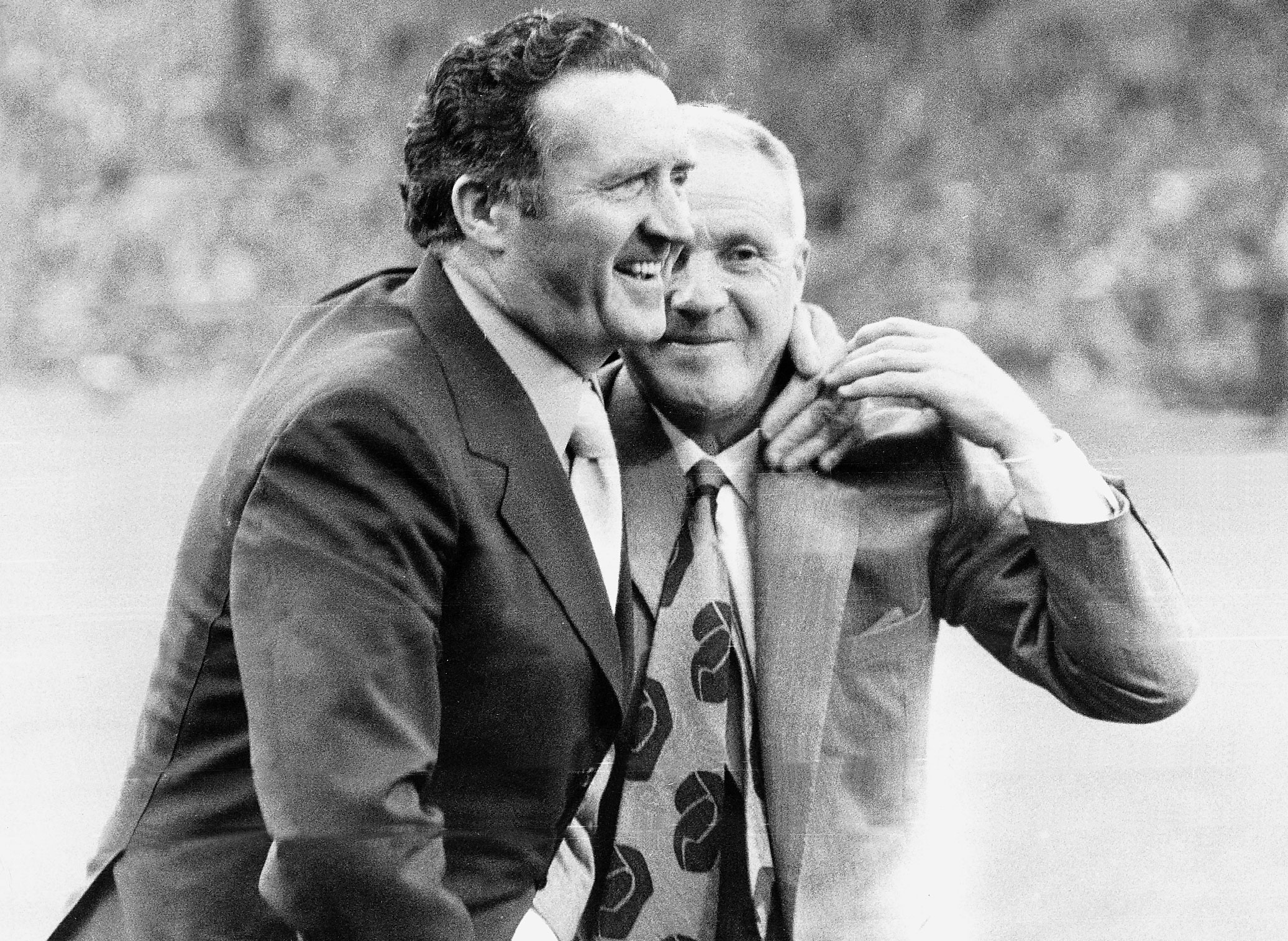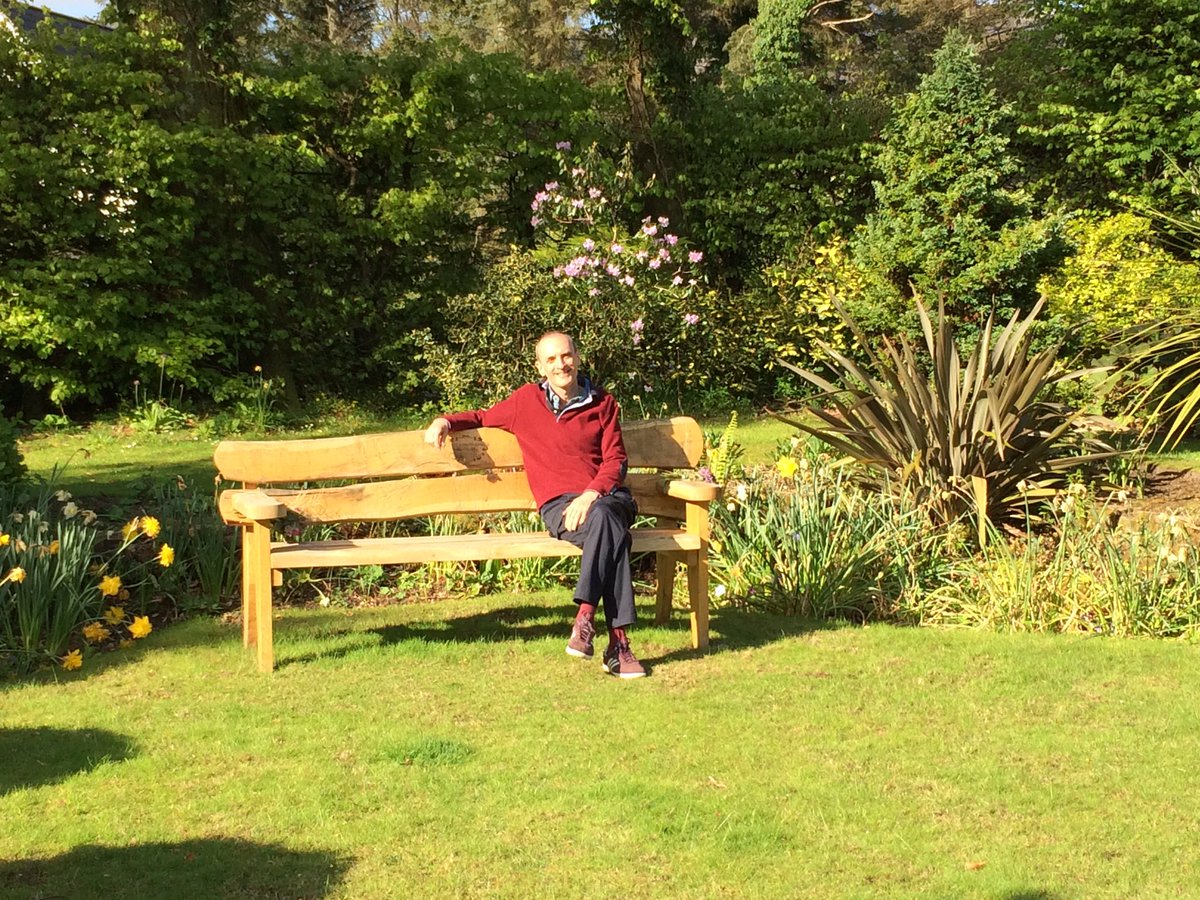Stein’s personality allowed him to exude or withhold warmth as he wished. Ruthlessness was a well-mastered part of his repertoire. Two journalists have told me how, on first encountering Stein as callow youths, he chose to mock them in front of their colleagues at a press conference. This was policy more than malice. Stein was attempting to plant inhibitions which might later be of service to him. During his leaden years in charge of Scotland there was remarkably little direct criticism of him in the newspapers. He had earned respect, but you wonder whether that journalistic reticence did not also stem from fear of him. It was not only the press who felt the weight of his authority.
Some time after his death a pair of former Celtic players were walking towards a supporters’ club where they were due to speak. ‘How could we ever tell them what a bastard he was?’ said one to another. Footballers, admittedly, are not reliable witnesses. Almost every player’s career ends in some form of rejection. There was, however, an unarguable harshness about some of Stein’s dealings with his men. Willie Wallace, after five years with Celtic, was wakened one morning at the Seamill training camp and told he must speak to some Crystal Palace officials because he was to be sold. There was no word of thanks and no explanation. Stein was also a remorseless negotiator when faced with players he did wish to retain. Jim Craig earned £35 a week in 1965 and, after the European Cup and all the championships, was on just £52 when he left seven years later.
In the task of controlling the budget, the manager was assisted by the system of contracts which applied in football at that time. In essence, a player remained the property of the club for as long as it wished. Stein was at home with those draconian, uncomplicated regulations. His spartan taste expressed itself in the very look of his players. Never mind Sergeant Pepper and flower power, his team was compelled to stick to the short back and sides and to wear grubby training kit which made it absolutely clear that football was supposed to be a form of manual labour. The only escape from austerity lay in the matches themselves, where the impudent energy of the late 1960s might be put to good use. In that decade, whether with Dunfermline Athletic, Hibernian or Celtic, Stein was the ideal manager. He was old enough to control ebullient youth and young enough to still understand it.

That equilibrium cannot last for long although Stein maintained it with more success than most. Even so, the later years brought an inevitable decline. Most people consider that the car crash that nearly killed him in 1975 deeply affected his temperament. He required a year to recuperate and when he did return to Celtic his old certainty had gone. Perhaps an accident which drives a steering wheel into your chest can make everything which had seemed solid appear fragile and provisional. Stein was, to all intents and purposes, eased out of Celtic Park in 1978. He became Leeds United manager, but remained at Elland Road for just 44 days. Although it was the Scotland job which lured him back, one could not have imagined Stein settling in England. By then he was too much embedded in the culture of Glasgow and Lanarkshire.
The energy and confidence continued to ebb away from Stein in his years in charge of the national side. He added an efficiency which took the team to a place at the 1982 World Cup and the 1-1 draw with Wales, on the night of his death, virtually ensured their qualification once again. His Scotland, though, thrilled no-one. Perhaps Stein lacked players of sufficient quality, but you suspect he would have achieved far more had he been given the job at the beginning of the 1970s. He had once been delicately attuned to the mood of supporters but was now capable of blundering. After a 1-0 defeat by England in 1982 he said the result had not mattered since the game was just a warm-up for the World Cup. As one of the 80,000 who had paid heavily for a ticket I know just how exasperating Stein’s words were. Astoundingly, the SFA even apologised in its annual report.
Stein was also finding it difficult to understand his own players. It perplexed him, for instance, that Steve Archibald should choose to ignore the menu at dinner and instead ask for smoked salmon as his starter. Footballers were becoming wealthy and sophisticated. It was a development that did not agree with Stein. One might sympathise with him to some extent but it was his job to adapt to the circumstances which arose. What, after all, did it really matter if Maurice Johnston liked to sport an earring or Charlie Nicholas thought it the height of fashion not to wear socks? Stein’s failure to accept these oddities may have indicated he was losing the mental suppleness he required.
And yet there is something intensely moving about these closing years of his life. The snap and the dash were gone but still he struggled to retain his great reputation. The thought of failure must be all the more intolerable when you have had well over 20 years of unstinting success. Stein fought decline with every resource he possessed. Enough expertise remained to nudge Scotland towards its expected place in the World Cup, but defeats took a terrible toll of Stein. Wales won 1-0 at Hampden in March 1985 and Stein spent the next six months agonising over the draw Scotland would now require from the return match in Cardiff.
Before setting off for that game he uncharacteristically cleared his muddled desk of all outstanding business. His health was failing, but a residue of guile remained. For that international with Wales, on 10 September, Stein felt that Davie Cooper of Rangers would be the decisive player but only introduced him as a substitute in the second half when the frenzy of the struggle was beginning to pass. Cooper proved effective against tiring opponents and Scotland, thanks to his equaliser from the penalty spot, collected the required point. Jock Stein’s last match had bowed to his will like so many before it. At full-time, eager to be in the dressing room, he rose from his seat in the dug-out but then collapsed. Stein died of the heart attack not long after.
In those last years, football must have been a matter of great strain and small reward. Yet his time as Scotland manager made a deep impression on the people who knew him at the SFA. There was a certain mellowness about him by then. An old adversary, the SFA secretary Ernie Walker, became an unexpected friend. Detached from the day-to-day routine of training footballers Stein turned a benevolent nosiness on the staff around him, always eager to find out about their lives. Humdrum, almost domestic, details suggest a man at peace.
Stein could often be heard singing some Sinatra standard as he got into the lift. He is also recalled leaning against a radiator in a back office, relishing the opportunity to revisit some old disputes in the company of a former referee, Jack Mowat. The curious duties of a Scotland manager were also attended to. Upon being asked to write to a boy who had broken both his arms while pretending to be Tarzan, Stein sent a letter which included a suggestion that Kenny Dalglish might be a better role model.
Despite the worries of the post there was time for Stein to indulge his aptitude for fellowship. On his way to work one morning, he was listening to a discussion on the Jimmy Young programme about the minneola, a cross between a tangerine and a grapefruit. Soon he was in the office asking everyone if they knew what a minneola was. Some guessed at a musical instrument and most were nonplussed. When Stein at last explained there were a few who did not believe him. The Scotland manager reached for the Yellow Pages, called Malcolm Campbell’s and disappeared. Eventually he returned carrying a paper bag. Those who had taken his word for its existence were given a minneola. The doubters had to make do with an orange. Placing your trust in Stein always was the wisest course.
Kevin McCarra
A special writer and a special man: A tribute to Kevin McCarra – Rest in peace, Kevin McCarra. You’ll Never Walk Alone.

With thanks to Football Memories Scotland.


